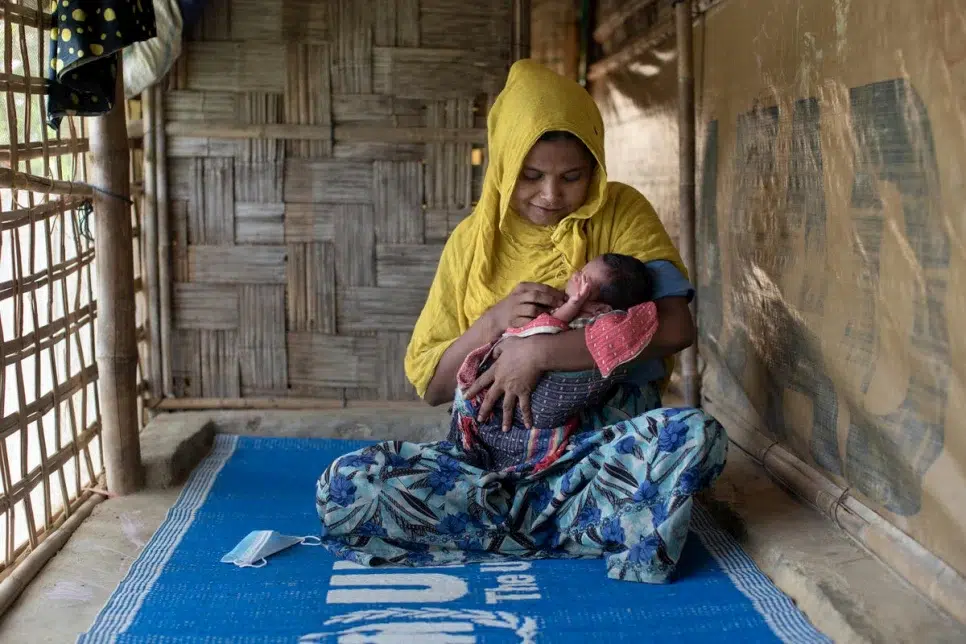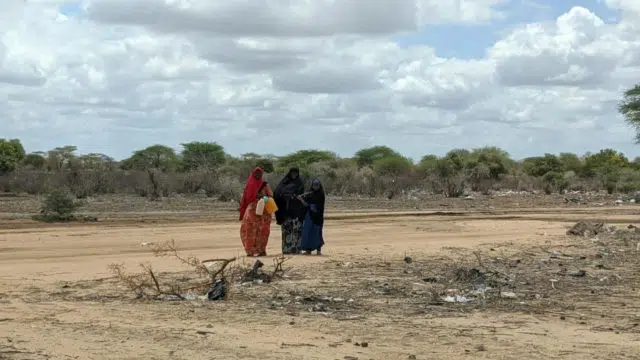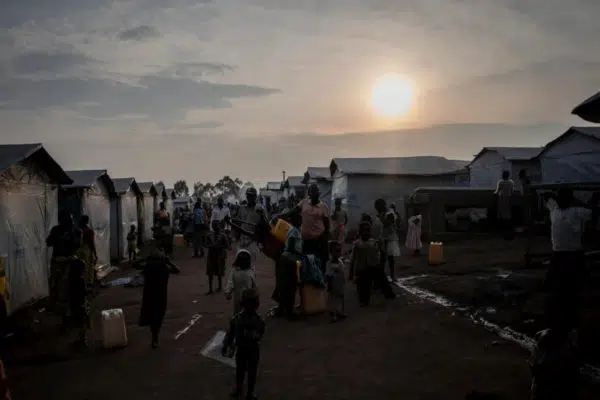
New mother Hamida Khatun at her shelter in Kutupalong camp for Rohingya refugees in Cox’s Bazar, Bangladesh. © UNHCR/Kamrul Hasan
This is a summary of what was said by UNHCR spokesperson Shabia Mantoo – to whom quoted text may be attributed – at today’s press briefing at the Palais des Nations in Geneva
This week marks five years since more than 700,000 Rohingya women, men and children fled Myanmar for Bangladesh, joining hundreds of thousands of other Rohingya who had sought and found refuge in the country in previous years. The latest exodus from Myanmar is now officially defined as being a protracted situation.
UNHCR, the UN Refugee Agency, is appealing for much greater efforts to secure both financial support and solutions for the Rohingya.
Since the onset of this humanitarian crisis, the Government of Bangladesh and local communities, with aid agencies, were quick to respond to arriving refugees, providing shelter in what is now the world’s largest refugee camp in Cox’s Bazar.
Five years later, many Rohingya refugees have told UNHCR they wish to return home to Myanmar so long as conditions for safe, dignified and sustainable returns are met and they can enjoy freedom of movement, access to documentation and a pathway to citizenship, as well as access to services and income-generating activities.
For the almost 1 million stateless Rohingya refugees, conditions in Bangladesh are extremely overcrowded, and they remain fully reliant on humanitarian assistance for their survival. With decreased funding, they face many challenges in their daily lives. Multiple humanitarian assessment surveys have found that the most commonly unmet needs include proper nutrition, shelter materials, sanitation facilities and livelihood opportunities. Some have resorted to dangerous boat journeys to seek a better future.
Protection needs — especially for women, children and people with disabilities — are often under-reported. Violence against children and women, especially gender-based violence, is shrouded in stigma that can render survivors voiceless, often unable to access legal, medical, psycho-social or other forms of support.
Support must be stepped up for education, skills development, and livelihood opportunities. These activities will prepare refugees for eventual return while also helping them remain safe and productive during their stay in Bangladesh.
Some 10,000 Rohingya children in Bangladesh are already enrolled in the Myanmar curriculum, taught in the Myanmar language. Support for sustained and expanded access to the Myanmar curriculum is needed. This a milestone towards a more formal education and helps close the gap for older children who previously had no learning opportunities.
UNHCR is also appealing for further investment from the international community to ensure Rohingya refugees can benefit from skills development, including vocational training and other forms of capacity-building for adolescent and adult refugees. This will allow refugees to support their communities and live with dignity in Bangladesh, and above all to prepare them for rebuilding their lives when they can voluntarily and safely return to Myanmar.
The support from the international community has been and is crucial in delivering lifesaving protection and assistance services for Rohingya refugees but funding is well short of needs. The 2022 response plan seeks over US$881 million for more than 1.4 million people, including Rohingya refugees and more than half a million most affected host communities, and is so far funded at only 49 per cent, with US$426.2 million received.
Together, the international community must do more to ensure that the Rohingya do not continue to languish in displacement and redouble efforts for increased political dialogue and diplomatic engagement to create conditions for voluntary, safe, dignified and sustainable return.
For more information on this topic, please contact:
- In Bangladesh, Regina de la Portilla, delaport@unhcr.org, +88 01847 327 279
- In Bangkok, Kasita Rochanakorn, rochanak@unhcr.org, +66 64 932 0803
- In Bangkok, Babar Baloch, baloch@unhcr.org, +66 80 086 5611
- In Geneva, Shabia Mantoo, mantoo@unhcr.org, +41 79 337 7650
- In Ottawa, Levon Sevunts, sevunts@unhcr.org, +1 613-286-6975





